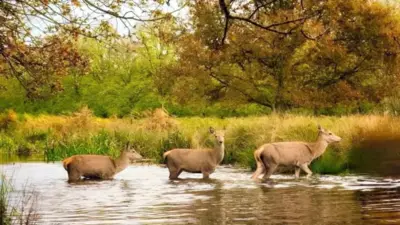We've updated our Privacy and Cookies Policy
We've made some important changes to our Privacy and Cookies Policy and we want you to know what this means for you and your data.
Largest earthquake for 10 years shakes Donegal
Image source, Getty Images
- Author, Matt Fox
- Role, ┤¾¤¾┤½├¢ News NI
A 2.5 magnitude earthquake was recorded in County Donegal in the early hours of Saturday morning, experts have said.
The Irish National Seismic Network (INSN) reported that the quake occurred at 01:32 local time near Glenveagh National Park.
It is understood to be one of Ireland's largest onshore earthquakes since records began.
The INSN previously detected a 2.5 magnitude quake on 26 January 2012 on the Fanad peninsula, also in Donegal.
It is operated by the Geophysics section at Dublin Institute of Advanced Studies (DIAS) with support from the Geological Survey Ireland.
Dr Martin M├Âllhoff from DIAS told ┤¾¤¾┤½├¢ NI that Donegal is, seismically, the most active region in Ireland.
"Overall Ireland is seismically relatively quiet, a felt earthquake occurs on average about every two years," he said.
"For yesterday's event we received over 100 felt reports and more are still coming in."
'It shook the house'
People living nearby reported a booming sound that woke them from their sleep, according to comments on the
Many said they presumed it was thunder or an explosion.
One woman in the village of Church Hill said: "Heard it indeed and it shook the house."
The earthquake was also detected by several Raspberry Shake seismometers operated by citizens and schools in counties Antrim, Dublin and Sligo.
Dr M├Âllhoff said reports from the public gave "valuable information" and urged people who may have felt the earthquake to make a report on their website.
Image source, Irish National Seismic Network
What causes an earthquake?
The Earth's surface is made up of huge pieces of flat rock called tectonic plates.
They float on top of a layer of softer rock called the mantle.
Tectonic plates move very slowly, over millions of years, and where they come together is called a fault.
When the plates rub together, friction forces waves of energy to come to the surface.
This causes tremors and shakes - and these are called earthquakes.
Earthquakes can happen anywhere there is a fault or weakness in the crust, however, major earthquakes usually only occur at plate boundaries.
Top Stories
More to explore
Most read
Content is not available








